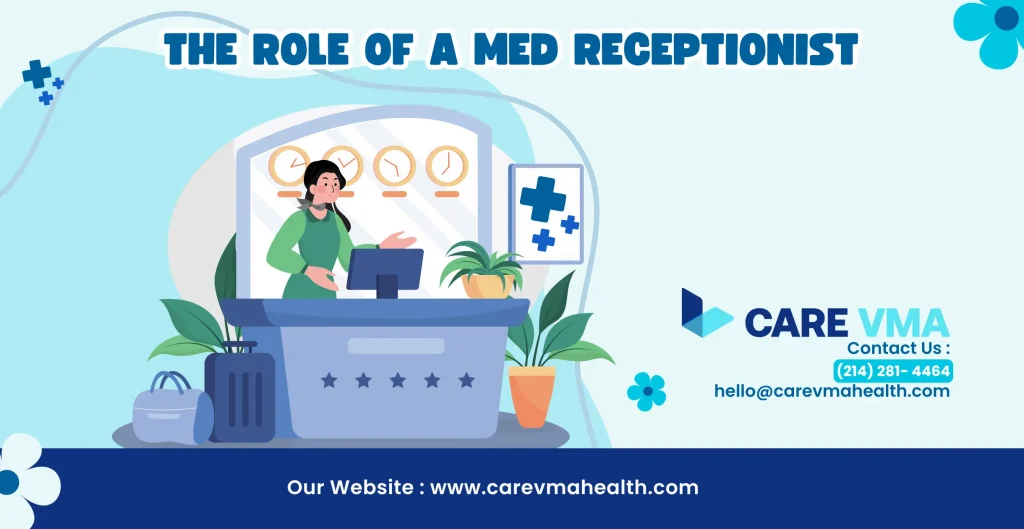Who else can manage over 80% of administrative tasks just like a virtual med receptionist? Medical clinics with no front desk expert face delays and scheduling errors. A trained med remote receptionist handles scheduling appointments and managing patient records. This allows doctors to focus on medical care. It also helps reduce long wait times. An experienced remote medical receptionist speeds up check-ins by 30%. No-show rates drop by 20%, which helps increase revenue. Let’s figure out how hiring a medic remote receptionist improves your patient experience and how it helps keep office operations smooth.
Table of Contents
Virtual Med Receptionist: An Expert Every Practice Need
A disorganized front desk always slows down your entire practice. Patients have to wait longer. Appointments get mixed up. Insurance claims take longer to process. Unless you hire a med receptionist to keep everything on track. They handle scheduling and patient intake. They also manage billing and records management. This allows your team to focus on medical care. Here are the major roles of a medical virtual receptionist in USA healthcare practices.
Why a Medical Receptionist is Crucial for Healthcare Practices
Healthcare providers have been struggling with the non-medical tasks at clinics. However, they have the support of a virtual receptionist to keep their practice organized and streamlined. They manage patient interactions and handle paperwork. They also ensure that the front desk runs without delays. The reception assistant improves efficiency and reduces errors. It also creates a better experience for both staff and patients.
Get the Top Virtual Med Receptionist for Your Practice!
A med receptionist plays an important role in keeping a healthcare practice organized. From managing scheduling and billing to getting hold of patient interactions and office tasks, virtual receptionists help doctors focus on patient care. They reduce delays and errors. If your practice needs expert medical virtual assistant support, hire the top talent from CareVMA Health. Get professional assistance and keep your practice running smoothly.
No credit card required – Easy onboarding

